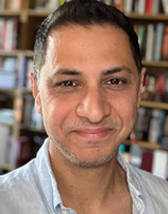President Obama wants to contain ISIS, force Iraq to heal its sectarian divisions, and limit American exposure to the conflict. His is struggling to craft a strategy that can meet all three objectives.
President Barack Obama’s faces a ‘trilemma' in Iraq. How does he simultaneously contain the Al Qa’ida breakaway group ISIS, coerce Iraqi Prime Minister Nuri al-Maliki to undertake political reform, and limit his political exposure to a conflict from which he withdrew three years ago?
Obama has explicitly argued that military action without political reform would be an unsatisfactory short-term fix. Obama reasons that unless ISIS and its neo-Baathist allies can be split from sympathetic Sunni communities, then Baghdad will not be able to durably hold areas cleared of militants.
Some, like the Iraq scholar Fanar Haddad, have advocated ‘delaying any attempt at structural change until the crisis has subsided to manageable proportions’ – but Obama might argue that, once he intervenes to stamp down the crisis, Maliki’s incentives to reform – a process that, by definition, would involve a diminution of his own powers – are reduced. Once one pulls a lever, one’s leverage falls; one also risks generating moral hazard.
President Obama’s 19 June speech
Obama attempted to reconcile these competing demands in his speech of 19 June.
Obama promised increased support for Iraqi security forces to weaken ISIS in the short-term. This includes:
- An increase in intelligence, surveillance and reconnaissance (ISR) assets (the number of reconnaissance flights over Iraq doubled from 17 to 34 between the 17 and 19 June);
- The creation of a joint operations centres in Baghdad and northern Iraq to share intelligence and coordinate planning;
- The deployment of 300 additional US Special Forces to “train, advise and support” Iraqi security forces in a non-combat role, dozens of whom will arrive soon.
Given the disarray in Iraq’s higher command (Maliki has fired five senior commanders for deserting their posts), the upgraded American role could increase morale in Iraq’s security forces and bring some order to what has been a chaotic response.
This support has three other purposes. First, it is intended to address weaknesses in American intelligence that the chairman of the Joint Chiefs of Staff, General Martin Dempsey, had warned of the previous day.
Second, it creates structures that would facilitate the second element in Obama’s speech, the threat of ‘targeted and precise military action if and when we determine that the situation on the ground requires it’. In particular, Special Forces could play a forward air control role, guiding US aircraft to targets – much as the SAS and others did in Libya. Third, this limited support buys time for reform. Obama explicitly connected his threat of airstrikes to the pace of ISIS’ advances, but more importantly he implicitly – though clearly enough – also connected it to political reform:
"Now, it’s not the place for the United States to choose Iraq’s leaders. It is clear, though, that only leaders that can govern with an inclusive agenda are going to be able to truly bring the Iraqi people together and help them through this crisis. Meanwhile, the United States will not pursue military actions that support one sect inside of Iraq at the expense of another."
Conditions for Intervention
Simply put, Obama is conditioning additional military support on the sort of political changes that he sees as necessary to breaking ISIS’ military and political coalitions.
Despite reports that the US is exploring the option of supporting alternative candidates for the premiership, Obama did not call for Maliki’s resignation and specified that ‘whether he [Maliki] is prime minister or any other leader aspires to lead the country, that it has to be an agenda in which Sunni, Shia and Kurd all feel that they have the opportunity to advance their interest through the political process’. This careful choice of words indicates that the White House wishes to give both itself and Maliki the latitude of demonstrating an ‘inclusive agenda’ by other means, such a pan-sectarian and pan-ethnic coalition with Maliki at the helm.
Yet Obama left the definition of such an agenda unspecified beyond such vague terms as ‘fair and just governance’. Translating this into practice is fraught with difficulty. Fanar Haddad has asked, ‘given the oceanic depths of Sunni alienation from Maliki, and all the damage that has been done over the years, what would an attempt by the prime minister to reach out to Sunnis even look like? What could he possibly say or do to engender trust from a group that views him in ways not dissimilar from how a critical mass of Shiites viewed Saddam Hussein?’ RUSI’s Gareth Stansfield has also scorned ‘the illiterate reading of Iraq’s political sociology as being capable of generating cross-cutting communal linkages’.
Obama’s challenge will therefore be to develop his own realistic benchmarks for Iraqi political reform, and convey this to Iraqi political elites and those states that influence Iraqi political actors.
This is all the more difficult in light of the fact that some Sunni communities in Iraq and a number of Sunni-majority and Sunni-led Gulf Arab states, notably Saudi Arabia, have struggled to reconcile themselves to the idea of Shia majoritarianism in Iraq since the 2003 invasion and therefore have unrealistic expectations of the sort of cross-sectarian power sharing that they think should be imposed in Iraq (power sharing of the sort that they would never, of course, countenance with their own politically marginalised sectarian minorities). Persuading Saudi Arabia to take a more constructive position will be one of the key secondary tasks of US Secretary of State John Kerry as he heads to Baghdad and the wider region.
President Obama characteristically deliberative style is unsuited to a conflict of this pace. Although he took days to deliver a major speech on Iraq, its basic outlines were obvious from the very beginning of the crisis: limited military support, with escalation predicated on sectarian outreach by Iraq’s political leaders.
WRITTEN BY
Shashank Joshi
Advisory Board Member

